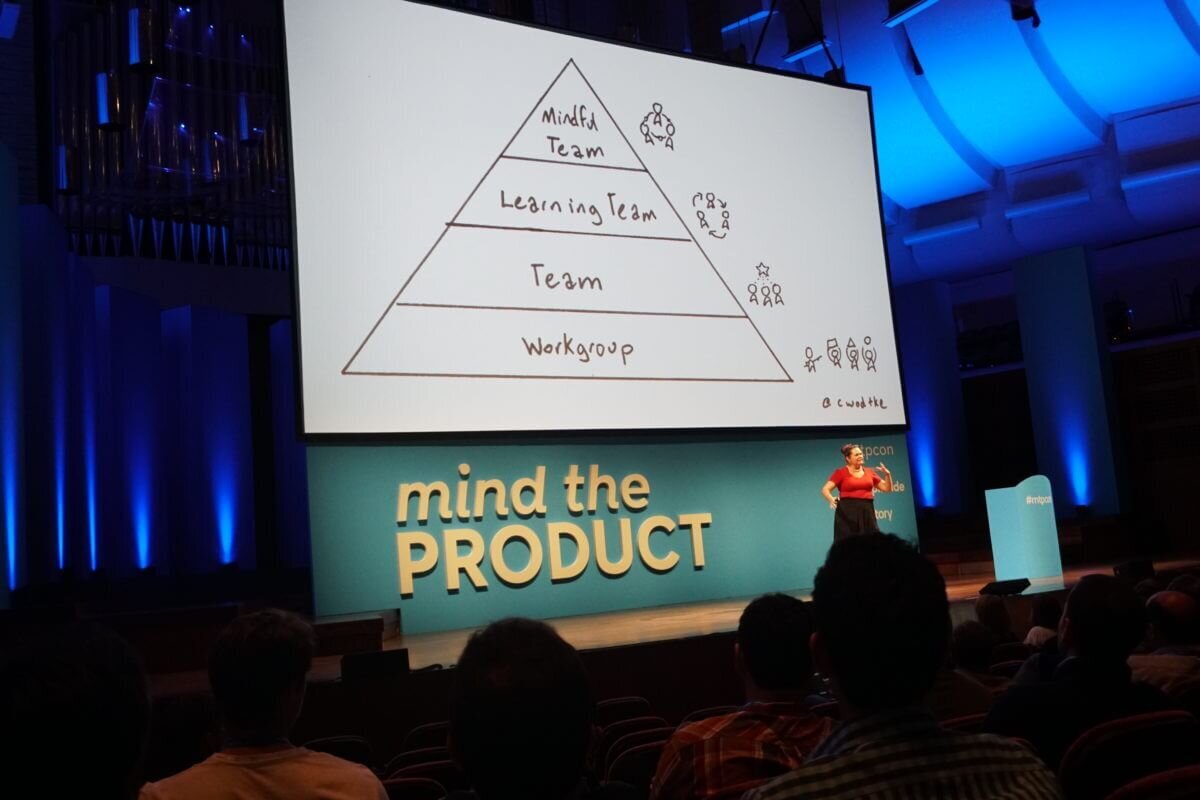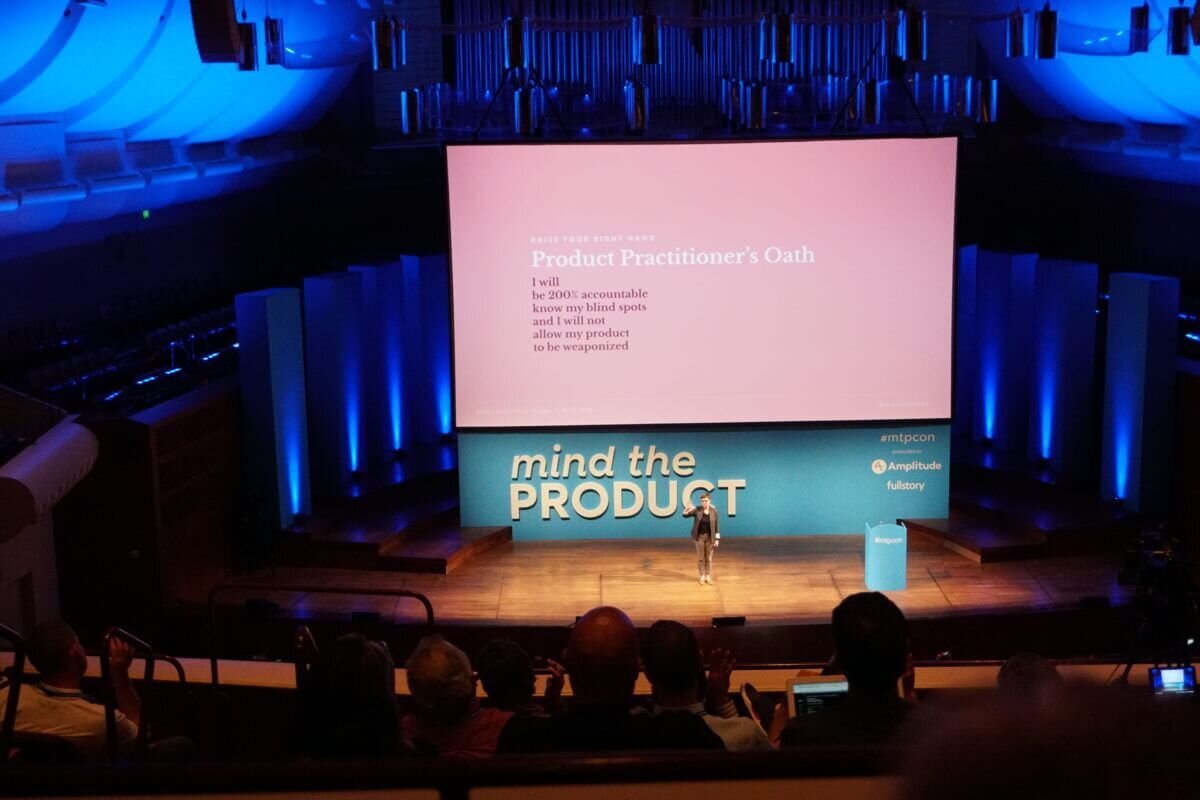There was something for everyone at Mind the Product’s annual conference in San Francisco this week.
Product leaders of virtually any experience or background could have walked away with frameworks for finding product-market fit, generating product ideas, conducting research, roadmapping, innovating, engaging users, and even managing their own time and attention.
But a trio of talks seemed relevant for everyone, even a non-product manager like myself.
Christina Wodtke: The Mindful Team
Speaker, author and OKR guru Christina Wodtke kicked things off with a talk on teams that was part strategy, part counseling session. With the first of many pyramids on the big screen Tuesday, she showed how teams can progress from a workgroup to the “Mindful Team” at the top of the pyramid. Mindful teams take care of each other and commit to helping one another and the team get better and better.
These teams master the process of planning, executing, and looking back on their work to make improvements for next time. They constantly ask how they can become the most incredible team ever.
They also recognize and embrace cultural differences (hat tip: Erin Meyer’s The Culture Map), and ensure everyone bears the load of informal roles like facilitator, note taker, and office housework (which received applause from the females in the room). Rather than defaulting to norms, they set them.
Cindy Alvarez: Reframed Questions
Cindy Alvarez had the auditorium consider how often the questions we ask are biased toward the answer we want or expect. This issue is so prevalent in product management and design that Alvarez, a principal design researcher at Microsoft, wrote an entire book on the topic.
For launching something new, find the biggest pain points to solve by replacing the typical “How likely would you be to use the thing?” (of course, they’ll say yes if it sounds great) with “Tell me what you’re currently doing in X situation.”
For understanding how customers use a product, eliminate “happy customer bias” by surveying low usage or churned customers, or those who use competitor products. And ask questions that give people permission to complain or be brutally honest, like “What tasks in this product do you put off doing?” or “How would you explain this product to a friend?”
Ask the questions in a way that makes you uncomfortable, and the answers you receive will allow you to make a product that people truly want.
Mariah Hay: Product Ethics
These earlier two sessions provided a good primer for Mariah Hay’s talk on ethics in product design. The vice president of product at Pluralsight, a technology learning platform, shared with the audience the story that led to her company’s first ethical code, challenging us all to courageously follow its tenets in our work.
Her mission is to ensure product managers fulfill their roles as problem finders and solvers, rather than becoming problem creators. Our easy access to users’ data makes this a threat for many of us.
Pluralsight’s ethical dilemma came after it acquired Smarterer, which offered skills assessments. Using Smarterer’s proprietary technology, Pluralsight could analyze a person’s existing skill set and recommend a learning path within its library of courses to help that person learn new skills.
Ethical questions came when Pluralsight sold licenses to companies and received requests to track their employees progress toward learning new skills. As the Pluralsight team weighed the concerns of individual learners alongside the wishes of their corporate clients, they came upon a solution that created value for both companies and learners, and eventually led to a very successful IPO. They also set a code of ethics that would serve as a filter for any future product decisions, the three principles that Hay asked the Mind the Product audience to abide by too.
- Find your blind spots—be honest and aware of your personal ability to cause harm;
- Don’t weaponize the product—understand the downstream effect of all people you serve;
- And, you are 200% accountable, 100 percent for yourself and 100 percent for the people around you.
Christina, Cindy and Mariah’s advice for the Mind the Product crowd could certainly make for better product managers. But also, better people.


![[object Object]](https://cdn.builder.io/api/v1/image/assets%2F6a96e08774184353b3aa88032e406411%2F16b6f2565d1d4a5585db322386f9be7f?format=webp)
![[object Object]](https://cdn.builder.io/api/v1/image/assets%2F6a96e08774184353b3aa88032e406411%2F728d67faa5f64299b8f8f0b138881fb5?format=webp)
![[object Object]](https://cdn.builder.io/api/v1/image/assets%2F6a96e08774184353b3aa88032e406411%2Fc08c4160a2724c4fa3d365eb43791b09?format=webp)
